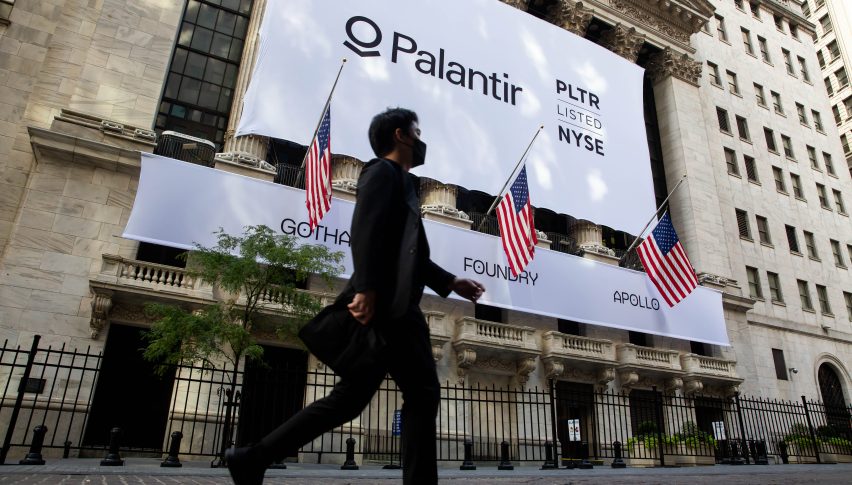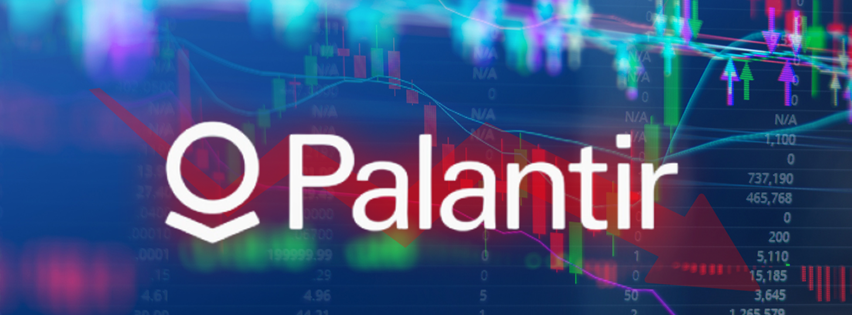Palantir PLTR Stock and Nvidia Decline as China Pushes Domestic Chip Production
As investor excitement over AI gives way to concerns about valuation and global policy risks, Nvidia and Palantir's equities are under...

Quick overview
- Nvidia and Palantir stocks are experiencing significant selling pressure due to valuation concerns and geopolitical risks.
- Palantir's shares fell 3.5% amid large institutional investors trimming their positions, indicating weakening investor confidence.
- China's regulatory actions against Nvidia and its focus on domestic semiconductor development have negatively impacted U.S. chipmakers.
- Despite strong government contract revenues, insider selling and high valuation metrics raise concerns about Palantir's future stability.
Live PLTR Chart
[[PLTR-graph]]As investor excitement over AI gives way to concerns about valuation and global policy risks, Nvidia and Palantir’s equities are under intense selling pressure.
Heavy Selling Hits Palantir
Large institutional investors have started trimming positions in Palantir Technologies (NASDAQ: PLTR), sparking renewed concerns about overheated valuations in the AI sector. Shares fell 3.5% in a single session before finding modest support, signaling that investor confidence is weakening after months of euphoria.
Adding to the pressure, Nvidia (NASDAQ: NVDA) also saw its stock decline on the same day, while Chinese technology stocks surged. Beijing’s efforts to prioritize domestic semiconductor development—following its antitrust actions against Nvidia—boosted confidence in local AI champions at the expense of U.S. firms.
China Developments Weigh on U.S. Chipmakers
The Cyberspace Administration of China recently ordered Bytedance and Baidu to stop testing Nvidia’s RTX Pro 6000D, directly impacting demand for Nvidia’s AI hardware. With Palantir also exposed to China-related uncertainty, both companies saw their shares retreat, highlighting how geopolitical risks remain a major overhang for U.S. technology firms.
Insider Selling Adds to Caution
On September 11, 2025, Palantir Director Stat Lauren Elaina Friedman disclosed a significant stock sale worth nearly $3.5 million. The transaction involved Class A shares priced between $164.26 and $167.25. Insider selling of this scale, coming during a volatile market phase, added to negative sentiment surrounding the stock.
From Hope to Unpredictability
Just weeks earlier, Palantir stock hit record highs above $189 after beating revenue expectations and issuing strong forward guidance. However, the surge proved short-lived. Investors began questioning its lofty valuation metrics, with PLTR trading at over 700x trailing earnings and a price-to-sales ratio of 115. Within days, the stock reversed, losing more than 25% by late August to trade around $142.
While PLTR briefly rebounded off the 50-day simple moving average, sellers quickly returned, pushing the stock back into decline this week. The volatility reflects a market torn between long-term optimism for AI adoption and near-term caution over bubble-like multiples.
PLTR Chart Daily – Buyers Need to Break Above the 20 SMA
Government Contracts Remain Core Growth Driver
Despite the turbulence, Palantir’s government business continues to provide stability. More than half of its revenues come from public sector contracts, anchoring growth even in choppy market conditions. Speculation grew after U.S. Commerce Secretary Howard Lutnick hinted that the Trump administration may consider equity stakes in key defense and AI firms, following its recent 10% purchase of Intel (NASDAQ: INTC). Palantir’s close ties to federal contracts fueled hopes it could be next.
Q2 2025 Highlights:
- Revenue: $1.004 billion (+48% YoY, +14% QoQ), well above the $939 million consensus.
- EPS: $0.16 versus $0.14 expected.
- U.S. Revenue: $733 million (+17% QoQ, +68% YoY).
Bubble Fears Loom Over AI Sector
The AI industry is increasingly compared to previous speculative waves such as the dot-com era and cryptocurrency surges. While adoption is accelerating, true large-scale deployment remains in its early stages. This mismatch between expectations and reality leaves high-valuation stocks like Palantir vulnerable to sharp corrections.
Complicating matters, global policy headwinds remain strong. U.S. restrictions have already forced major chip design software companies like Siemens EDA and Synopsys to halt sales to China, further reshaping the competitive landscape.
Conclusion: Palantir’s recent selloff reflects a market grappling with both overheated AI valuations and intensifying geopolitical risks. While its reliance on government contracts offers a degree of resilience, insider selling, China’s regulatory push, and bubble fears suggest volatility will remain elevated. Investors may need to brace for further swings before clarity emerges on Palantir’s long-term trajectory.
- Check out our free forex signals
- Follow the top economic events on FX Leaders economic calendar
- Trade better, discover more Forex Trading Strategies
- Open a FREE Trading Account



